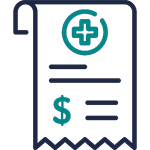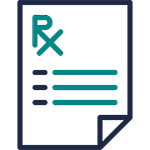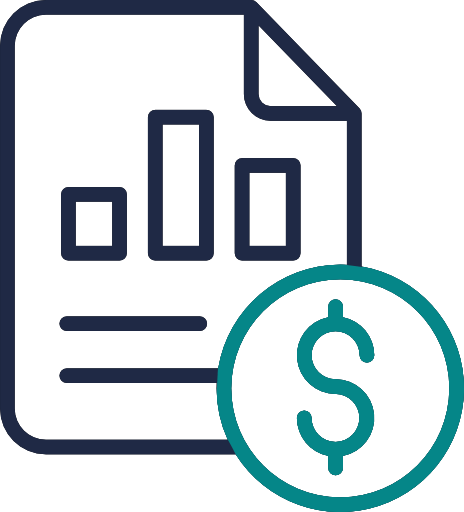Getting paid on time has become one of the biggest challenges for healthcare professionals today. It creates a web of financial and administrative burdens that strains operations and impacts patient care. However, there can be many reasons for that, but it is definitely compromising the quality of services rendered to patients.
While medical practices strive to deliver quality healthcare, the issue of unpaid claims keeps revolving. From cash flow disruptions and front desk burden to strained patient relationships and regulatory risks, the consequences of unpaid claims reverberate throughout the healthcare ecosystem.
In the next shred of this article, we have nine consequences of unpaid bills disturbing the entire healthcare system. Each consequence has its unique challenges, and to address them, we have tagged some expert-recommended tips to help providers get help with medical bills.

Increased Administrative Burden
Healthcare administration is not as easy as everyone thinks. We know what goes around from insurance verification to patient admission and financial assistance for medical bills. But billing management, especially managing unpaid bills is an entirely different story.
These unpaid medical bills require additional administrative efforts. Staff members may have to spend valuable time following up with patients, and insurance companies, sending reminders and dealing with billing inquiries, etc.
This all diverts resources away from other essential tasks, such as patient care and practice management, which not only impacts the facility’s front desk but the entire system including patients.
Strained Patient Relationships
Unresolved billing issues have a direct impact on straining the relationships between the medical practice and its patients. And, how can medical bills go to collections is a recurring question for healthcare professionals.
This is because if a patient’s claims are continuously getting denied, they might not receive the care that they would, otherwise.
This way patients may face dissatisfaction, frustration, or even feel neglected. And, the reason is only their bills, not being addressed by the insurance company on time.
Not only this strained relationship will harm the reputation of the practice but also lead to a decline in patient loyalty and trust, which is definitely not acceptable.
Compliance and Regulatory Risks
Unpaid medical bills can also pose compliance and regulatory risks for the healthcare practice. This tip is for healthcare providers to adhere to specific regulations, such as the Health Insurance Portability and Accountability Act (HIPAA) and the Fair Debt Collection Practices Act (FDCPA).
Failure to comply with these regulations while trying to collect unpaid bills can result in legal consequences and damage the practice’s reputation.
Cash Flow Issues
Medical bills that remain unpaid may lead to significant cash flow problems for the healthcare practice. Turning medical bills in collections from patient payments is crucial for covering operating expenses, paying staff salaries, and maintaining the facility. This is a door that leads to another door, when one of them is closed, the others have its effects too.
Hence, when the medical bills are not paid by the insurance companies, it can strain the practice’s financial resources and hinder its ability to provide quality patient care.
Reduced Profitability
Providers and practice managers, in any case, cannot deny that unpaid medical bills directly impact their facility’s profitability.
When bills go unpaid, it affects the overall revenue stream and can result in decreased profit margins. This may have an impact on the fares provided to the staff and services offered to the patients.
The practice, therefore, may have to reassess its financial goals, budgets, and resource allocation to compensate for the loss.
Increased Bad Debt
The bills that remain outstanding for an extended period may be classified as bad debt for healthcare practices. Bad debt refers to the portion of accounts receivable that is unlikely to be collected. This is why we always suggest healthcare providers have this skill in how to negotiate medical bills in collections.
These bad debts have a direct impact on the practice’s financial statements, potentially leading to write-offs and negatively affecting their overall profitability.
Limited Resources For Investments
When medical bills go unpaid, the practices, as a result, get financially weak. Consequently, they may have limited resources available for investment in essential areas such as new medical equipment, technology upgrades, staff training, or facility expansion.
This can hinder the practice’s ability to enhance its services and stay competitive in the healthcare industry. Moreover, they might have to reduce overhead costs and outsource their medical bills, which can harm their practice’s revenue.
Adverse Effects on Credit and Financing
As hinted earlier, outstanding medical bills can negatively impact the practice’s credit rating and ability to secure financing.
Lenders and financial institutions consider a practice’s financial health and medical debt collection when assessing loan applications. Persistent unpaid bills can signal financial instability and make it challenging to obtain favorable financing terms.
Legal and Ethical Considerations
Since medical practices have legal and ethical obligations when it comes to billing and collections, they must comply with laws and regulations governing medical billing practices.
This includes accurately documenting all services rendered, coding correctly, and submitting claims within specified timeframes.
Failure to comply with these can result in legal consequences, audits, and reputational damage for healthcare facilities.

Top Five Tips For Timely Reimbursements
Verify Insurance Coverage and Eligibility
Prior to providing medical services, verify the patient’s insurance coverage and eligibility. This tip outstandingly helps with medical bills, preventing billing complications and ensuring that claims are submitted accurately and promptly. Understanding the patient’s insurance benefits, such as deductibles, co-pays, and coverage limitations, can help set appropriate expectations and avoid delays or denials in payment.
Accurate Coding and Documentation
Accurate coding is crucial for timely reimbursement. Ensure that medical procedures, diagnoses, and services have correct codes according to the appropriate coding guidelines given by AMA.
Streamline Billing Processes
Implement efficient billing processes to minimize errors and delays. Utilize electronic health records (EHR) and billing systems to streamline the coding, documentation, and billing procedures.
Proactive Follow-up and Collections
Establish proactive follow-up procedures to ensure timely payment. Regularly review outstanding balances and dedicate staff members to follow up with patients or insurance companies on unpaid bills.
Outsource Medical Billing
Outsourcing medical billing is an alternative option that healthcare providers can consider to streamline their revenue cycle management and enhance the timely payment of medical bills.
Conclusion
By partnering with a professional medical billing service like GreenSense Billing, providers can benefit from specialized expertise, improved efficiency, and a dedicated focus on billing and collections. We have the industry’s leading coding and billing experts, helping providers across the US minimize their denials and maximize their reimbursements.
Don’t be the one who sits back, relaxes, and waits for things to get worse. Instead, trust us, and let GreenSense Billing take care of your medical bills. We promise increased collections and reduced overhead costs.



















